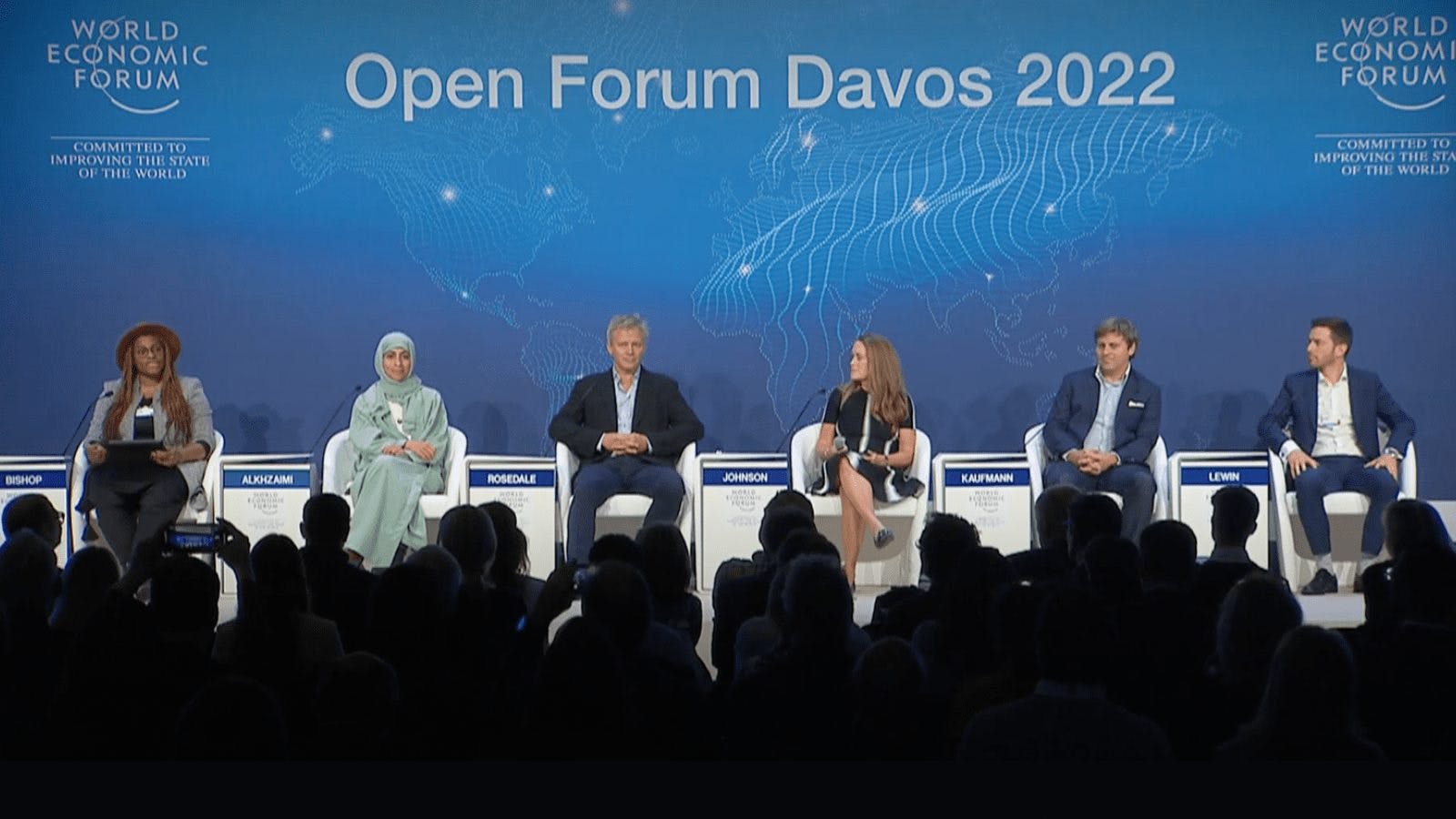Metaverse Takes Center Stage at Davos as Adoption Questions Loom
Augmented reality, virtual reality and artificial intelligence are central to widespread adoption, panelists said

"The Possibilities of the Metaverse" panel at the World Economic Forum annual meeting in Davos | Source: World Economic Forum
- Companies including LEGO Group are working on augmented reality technologies to grow metaverse usage
- LEGO, alongside Sony, invested $1 billion into Fortnite’s developer to scale their metaverse dealings
The metaverse took center stage at much of Davos this week.
The consensus: It’s still early days for digital realms that proponents say will one day replace much of our daily lives, from work to play.
One panel at the annual gathering of the world’s elite, hosted by the World Economic Forum (WEF), “The Possibilities of the Metaverse” gathered thought leaders including Philip Rosedale, the founder of High Fidelity and Second Life, Magic Leap CEO Peggy Johnson, as well as Edward Lewin, vice president of government and public affairs at the LEGO Group.
Asked to define the metaverse, Johnson described it as the digital infrastructure of the internet, a network of different — sometimes overlapping — virtual worlds accessible via a phone or computer.
Johnson, who heads enterprise augmented reality platform Magic Leap, said corporations will drive widespread metaverse adoption — including tapping emerging technology to develop training for firefighters and medical students.
The future of the metaverse is going to be “inspired by our inner child,” Lewin said. One in three internet users is a child or young adult well-positioned to design virtual worlds that work for them, he added.
The LEGO Group’s parent company, KIRKBI, recently invested $1 billion with Sony into Fortnite developer Epic Games as it grows its metaverse ambitions. He added their main goals are to promote the safety and well-being of kids and families, as well as promote privacy and ensure choice when it comes to sharing data.
Rosedale’s avatar-based virtual platform, Second Life, meanwhile, has been around for almost two decades and has its own economy. But it’s not built on the blockchain.
He described the million person user base to be on average 40 years or older, and they “come together, get to know each other or work together.”
Asked his views on digital privacy, he said it’s a “tremendous challenge” to balance security, privacy and freedom of speech.
Unlike in the real world with safeguards like passports, in Second Life, he added: “There must be a balance between preserving your identity so you can truly be someone else if you wish to, while still being able to connect with others in a way that creates responsibility and consequence.”
The WEF released a poll Wednesday that gauged public opinion of the metaverse. More than two-thirds of respondents from China, India and Peru were bullish, while only a third of those surveyed from Great Britain, Canada, Japan, Belgium, France and Germany were keen on a hyper-connected metaverse.
Get the news in your inbox. Explore Blockworks newsletters:
- The Breakdown: Decoding crypto and the markets. Daily.
- 0xResearch: Alpha in your inbox. Think like an analyst.






